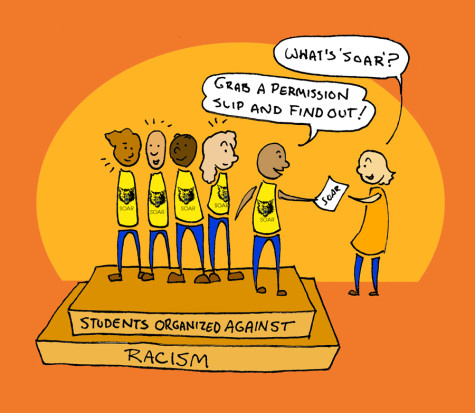Effective time management encourages informal learning
Weekends are not an extension of the school week.
Students who over commit themselves to extracurricular activities and take many challenging classes may miss vital opportunities to learn through everyday experiences.
Time management plays a major role in the amount of free time a student has.
“Like most self-regulatory skills, time management skills develop gradually,” said Catherine Haden, a developmental psychologist at Loyola University. “They can be affected by the age of the individual, feedback or monitoring from others as well as motivation or their reasons for doing work.”
Time management skills can be developed through simple skills like developing goals and following a schedule.
Get a planner or just use your pilot. You can also try google calendar if you are more tech-savvy. Write down everything so you can plan ahead and allow for flexibility, conflicts may arise, so leave space to move things around if needed. Don’t forget to schedule in rewards like hanging out with friends or chill time.
“I’m a varsity athlete on the swim team and I am in six AP classes this year,” said Julia Fiorino, junior. “I often feel like there just isn’t enough time to get everything done and sometimes I have to prioritize work for one of my classes over the others. It’s hard to decide what really has to get done each night.”
Developing time management skills helps high school students gain free time.
“Free time provides opportunities for students to do what they want to do and pursue pleasure, happiness and self-expression. However, if individuals don’t know how to fill their free time in an enjoyable way, they may feel bored, and perhaps engage in activities that are not constructive or healthy,” said Haden.
Informal learning proves that AP classes aren’t the only ways to be successful.
“Learning outside of the classroom without tests or formal curriculum is called informal learning,” said Haden. “Individuals only spend 20% of their lives in schools, so much of what we do is learning outside of the classroom environment.”
Balance is key to picking out a challenging school schedule. Informal learning is just as important as, or even more so, than taking advanced classes. Getting out in the real world and pushing yourself out of your comfort zone is beneficial to learning and growth.
Time management is a life skill.
“Being able to juggle a full time career, family, and time for one’s self is a constant exercise in setting goals, scheduling and overall time management,” said Haden.
Your donation will support the student journalists of the Evanstonian. We are planning a big trip to the Journalism Educators Association conference in Nashville in November 2025, and any support will go towards making that trip a reality. Contributions will appear as a charge from SNOSite. Donations are NOT tax-deductible.






